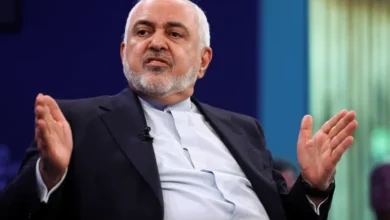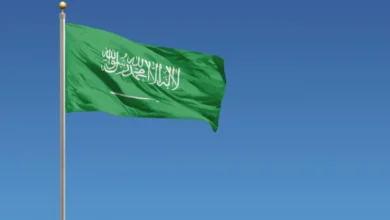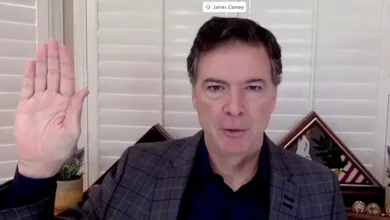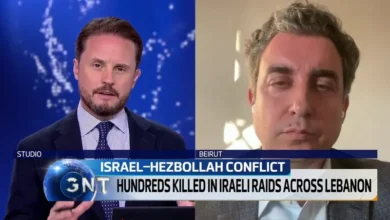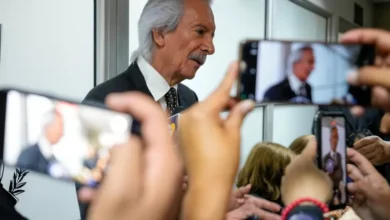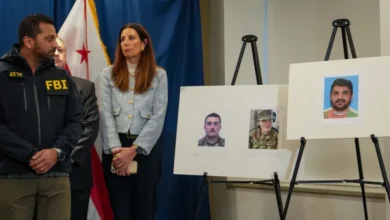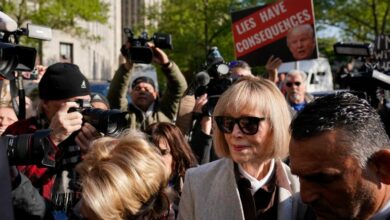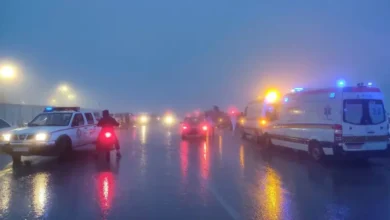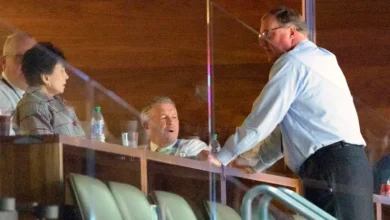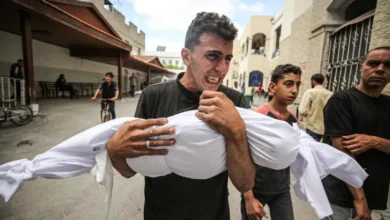ICJ hears South Africa request over Israeli assault on Gaza’s Rafah
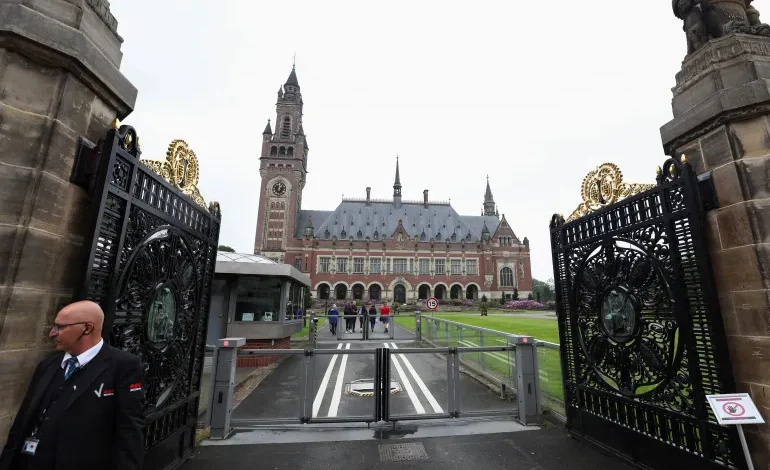
- The International Court of Justice (ICJ) is holding hearings to discuss a request by South Africa seeking additional emergency measures over Israel’s offensive on Rafah, a city in southern Gaza where more than one million displaced Palestinians sought shelter from Israel’s war.
- South Africa will present its public oral argument at The Hague-based court at 13:00 GMT on Thursday. Israel is scheduled to provide its views on Friday at 08:00 GMT.
-
The ICJ session has begun
The ICJ session is now underway, and South Africa will soon present its oral arguments.
ICJ hearings shine light on Israel’s ‘genocide’
Hassan Barari, a professor of international affairs at Qatar University, says while there is no mechanism for the implementation of the ICJ’s rulings, an order by the court carries significant weight.
“It gives ammunition to the international community to call a spade, a spade; to tell the Israelis that what you’re doing is a genocidal attempt to probably clear out Gaza from the Palestinians,” he told Al Jazeera.
Barari said the proceedings at the World Court will also “feed the internal debate in Israel” about the way authorities are dealing with the Palestinians.
“Everyone is talking about the day after – but what about the fate of the Palestinians on the ground, what’s going to happen to them? I think this is very important,” he added.
“What the hearing is going to do is going to put more pressure and bring the cause to the forefront of the international debate.”
ICJ rulings ‘significant’ even if Israel ignores them
William Schabas, a professor of international law at Middlesex University, says the court’s previous orders for additional provisional measures have been “significant” even if Israel ignored them.
Schabas said Israel’s failure does not mean that the measures have been to no purpose or have no effect “because they have clearly influenced the political situation and the political debate”.
“The determinations by the court in these provisional measures orders have had a huge political impact not only on states that have been traditionally very critical of Israel, but also on many of the states that are most friendly to it who are increasingly persuaded of the harm that Israel is doing and of the need to stop it by the rulings of the court to date,” he added.
Can the ICJ enforce provisional measures?
ICJ judgements are legally binding and cannot be appealed.
However, the court has no real power to enforce its rulings.
If Israel does not comply, South Africa can appeal to the UN Security Council for enforcement. But there, Israel’s staunch ally has veto power as a permanent member.
What is the ICJ?
The ICJ, also known as the World Court, is the highest United Nations legal body. It was established in 1945 to resolve disputes between states.
It should not be confused with the treaty-based International Criminal Court (ICC), also in The Hague, which handles war crimes cases against individuals.
The ICJ’s 15-judge panel – which is expanded by an additional judge of Israel’s choosing in this case because there is already a South African judge – deals with border disputes and increasingly cases brought by states accusing others of breaking UN treaty obligations.
South Africa and Israel are signatories to the 1948 Genocide Convention giving the ICJ jurisdiction to rule on disputes over the treaty. While the case revolves around the Israeli-occupied Palestinian territories, Palestinians have no official role in the proceedings.
All states that signed the Genocide Convention are obliged to not commit genocide, and to prevent and punish it. The treaty defines genocide as “acts committed with intent to destroy, in whole or in part, a national, ethnical, racial or religious group”.
Which other countries have requested to join South Africa’s case?
Egypt has recently joined Turkey, Nicaragua and Colombia in formally requesting to join South Africa’s case against Israel.
Egypt said it is calling on Israel “to comply with its obligations as the occupying power and to implement the provisional measures issued by the ICJ, which require ensuring access to humanitarian and relief aid in a manner that meets the needs of Palestinians in the Gaza Strip”.
Colombia called on the ICJ to ensure “the safety and, indeed, the very existence of the Palestinian people” when it filed its application.
ICJ hearing a chance to ‘put real pressure on Israel’
Hassan Barari, a professor of International Affairs at Qatar University, says today’s hearing at the International Court of Justice is a continuation of South Africa’s effort that began late last year when it went to the court accusing Israel of violating its obligations under the Genocide Convention during its war on Gaza.
Speaking to Al Jazeera, Barari said the new request for additional provisional measures also provides “much evidence” for international powers to step in and “put real pressure on Israel”.
“When I say ‘real pressure’ I’m saying [placing] a price tag, because if you keep saying that ‘Israel should do this’ or ‘Israel should not do that’, the Israelis would listen to that but then they would continue business as usual. But when you place a price tag, Israel would rethink its position,” he added.
Barari concluded that the hearing is “very important” but also noted: “The question whether it’s going to being an end to the war, I think, this is maybe far-fetched.”
What is a provisional measure?
The ICJ uses the term provisional measure to describe a procedure that preserves existing legal rights pending an outcome on the merits of a dispute.
This means in South Africa’s case against Israel, although it will likely take years before the court will rule on the merits of the genocide case, it can implement provisional measures to prevent any genocidal acts from taking place.
How does the ICJ case differ from the ICC cases against Israel?
The International Criminal Court (ICC) is currently investigating Israel’s actions in the occupied West Bank and the Gaza Strip.
The ICC prosecutes individuals for committing war crimes, crimes against humanity and genocide, while the ICJ, also based in The Hague, was created to resolve conflicts between states.
While states cannot be prosecuted before the ICC, several countries, including Bolivia, Bangladesh and Chile, have requested the ICC investigate crimes against civilians in Israel’s war on Gaza.
In late April, Israeli media reported that the ICC may soon issue arrest warrants for Israeli officials, including Prime Minister Benjamin Netanyahu, Defense Minister Yoav Gallant and Chief of Staff Herzi Halevi.
The Israeli Ministry of Foreign Affairs also said that it has issued warnings to senior political and military officials that they could soon face arrest warrants.
